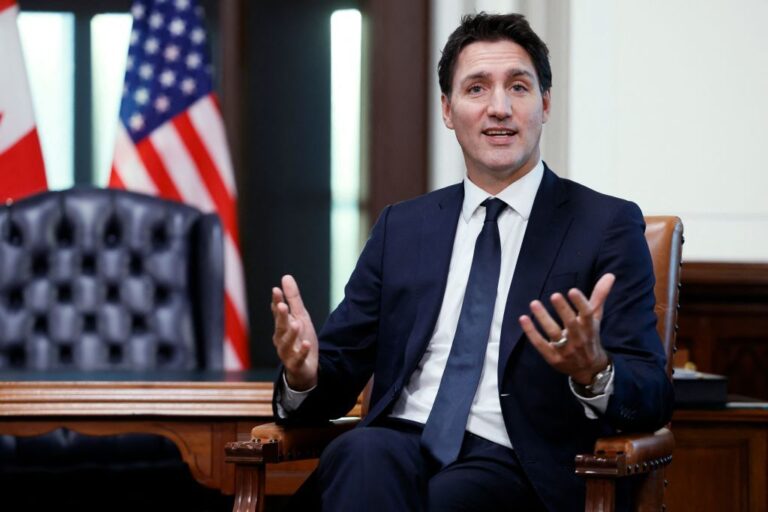Prime Minister Justin Trudeau addresses the nation as Canada announces drastic reductions in immigration targets due to economic and social challenges. Photo: Blair Gable/POOL/AFP via Getty Images
In a significant policy shift, Canada announced a reduction in its immigration targets, indicating it will admit up to 27% fewer new permanent residents over the next three years. The government noted that the large numbers of immigrants in recent years have caused serious economic and social challenges.
Under the new target, the number of permanent residents will fall to 395,000 in 2025, down from 500,000 previously approved. That number will decline further, to 380,000 in 2026 and 365,000 in 2027.
Prime Minister Justin Trudeau and Immigration Minister Mark Miller unveiled the plan, describing it as a temporary measure aimed at curbing population growth and stabilizing the economy. “In response to our country’s changing needs, this plan can reduce pressure on housing, infrastructure and social services, and grow economic and social prosperity through immigration in the long term,” the Government of Canada said in a statement. .
Prime Minister Trudeau emphasized the need to ensure the immigration system works effectively for all Canadians. The government has faced criticism, with recent opinion polls showing the ruling Liberal Party trailing the Conservatives by more than 20 points, largely due to rising house prices under the government and declining costs of living. rise, and a decline in basic services.
Canada has long been a destination for many Latino immigrants seeking a better life, and the country’s Hispanic population continues to grow steadily. A new study from the National Foundation for Policy Studies shows that as baby boomers retire and the birth rate stagnates, U.S. economic growth will increasingly depend on immigration. By 2052, the U.S.-born labor force is projected to reach 146.7 million people, with future labor force growth driven solely by immigration.
Last month, the Latino Donor Collaborative and Wells Fargo released a study that revealed that Latinos contributed $3.6 trillion to the U.S. economy in 2020, making the U.S. It will rank as the fifth largest economy in the world, surpassing France, the United Kingdom, and Canada.
The announcement caused a stir, especially as many in British Columbia’s business community were already preparing for an expected influx of immigrants. Jasloop Ghosal, interim spokesperson for the Surrey Board of Trade, expressed disappointment, saying the sudden policy change would disrupt businesses’ plans for growth and stability, especially as labor shortages continue. He told Global News that the cuts could exacerbate existing labor problems, highlighting the disconnect between skills needed and available in the job market.
Immigrant rights groups criticized Canada’s decision as a capitulation to anti-immigrant sentiment, arguing it would relegate immigrants to temporary or undocumented status, making them even more vulnerable to exploitation. Immigrant Rights Network spokesperson Saeed Hassan said the cuts would limit vulnerable people’s paths to permanent residence.
Gosar warned that such changes could signal to potential investors that Canada lacks adequate policies to support immigration and could discourage foreign investment in British Columbia. He called for a focus on reskilling and upskilling the workforce to meet labor market demands.
© 2024 Latin Times. Unauthorized reproduction is prohibited. Please do not reproduce without permission.


